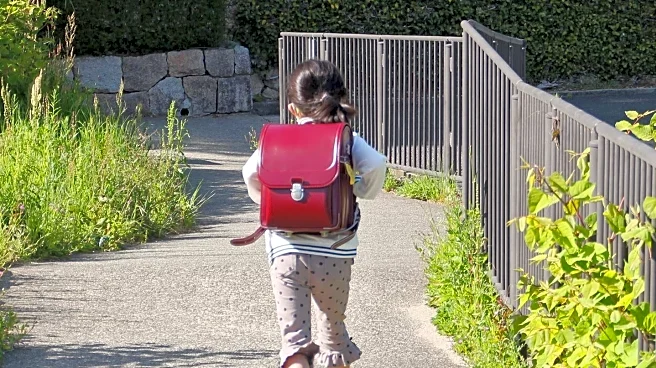What's Happening?
A comprehensive overview of systematic reviews has been conducted to examine the behavioral determinants influencing physical activity and healthy eating among schoolchildren. The study, adhering to the Cochrane Handbook for Systematic Reviews of Interventions, included randomized controlled trials and observational studies focusing on children under 11 years of age. The interventions were primarily implemented in school settings, such as after-school programs and active school transport initiatives. The reviews assessed various outcomes, including physical activity levels, dietary habits, cognitive outcomes like knowledge and self-efficacy, and biological outcomes such as BMI and waist circumference. The study aimed to synthesize evidence on body composition and weight-related outcomes across different review designs.
Why It's Important?
Understanding the behavioral determinants of physical activity and healthy eating in schoolchildren is crucial for developing effective interventions to combat childhood obesity and promote healthier lifestyles. The findings can inform policymakers, educators, and health professionals about the most effective strategies to encourage physical activity and healthy eating habits in young populations. By identifying successful intervention components, such as self-monitoring and goal setting, stakeholders can tailor programs to improve health outcomes and reduce the risk of chronic diseases associated with poor lifestyle choices.
What's Next?
The study's findings may lead to the development of more targeted and effective school-based interventions aimed at improving physical activity and dietary habits among children. Stakeholders, including schools and public health organizations, might use this evidence to implement programs that address the specific needs and challenges faced by schoolchildren. Further research could explore the long-term impact of these interventions on children's health and well-being, potentially influencing public health policies and educational curricula.
Beyond the Headlines
The study highlights the importance of considering gender-related differences in intervention outcomes, as analyzed using the SAGER Guidelines. This approach ensures a rigorous and equitable analysis of how interventions may differentially impact boys and girls, emphasizing the need for gender-sensitive strategies in promoting healthy behaviors among schoolchildren.










